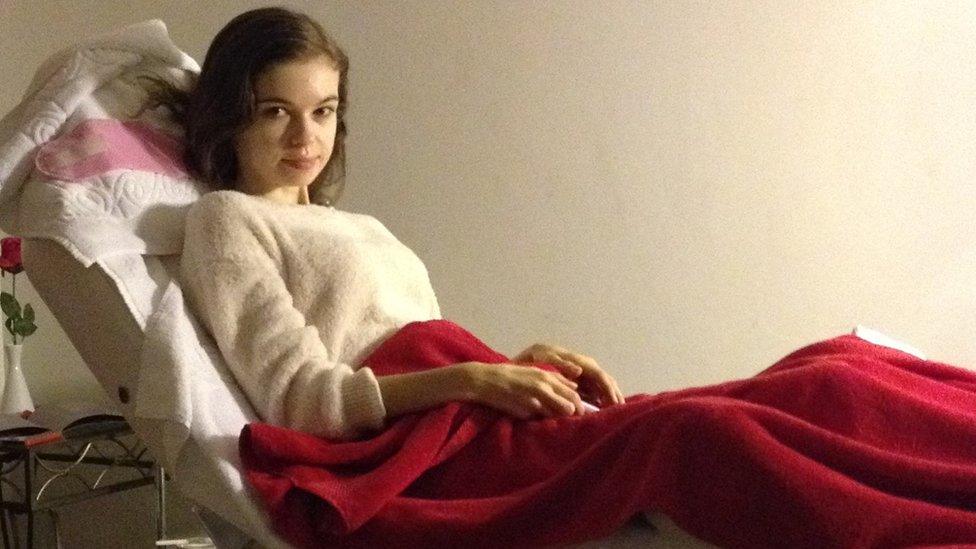ME protesters gather in London
- Published
Protesters have gathered in London calling for more research into chronic fatigue syndrome.
The long-term illness, also known as ME, can leave people bedbound for years - but despite its severity it's still not well understood.
It comes days after a leading expert told a Newsbeat documentary that one of the most common treatments for it should be scrapped.
It's thought to affect around 250,000 people in the UK.
'I want my sister back'
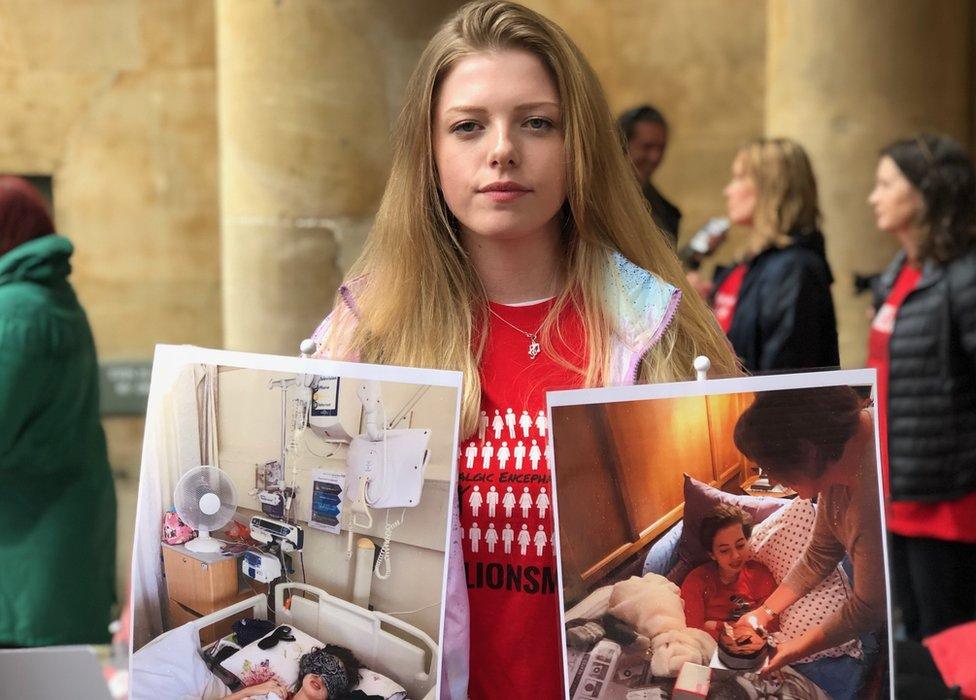
One of the protesters is Emily. Her sister was diagnosed with ME six years ago, when she was 12.
She's been completely bedbound for months now and is being fed through a tube in hospital.
"We're struggling to get the treatment she needs", Emily says, "we need to get her feeding, we need to address her pain, but it's not being addressed in the way it should be.
"They think it's psychologically based, they think she needs to go off and have therapies that we've already tried - so we know they won't work.
"The way I describe it is I'm actually grieving the loss of my sister because she's not around anymore. She's asleep 23-and-a-half hours a day and I want her back."
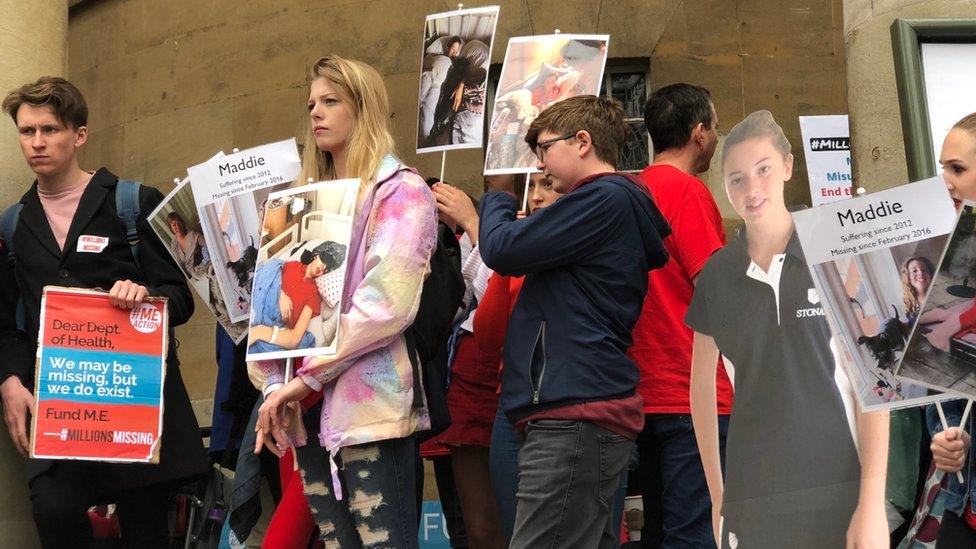
ME can not only leave people without the energy to get up, sometimes unable to take on food, it also makes them extremely sensitive to light and sound.
But medical professionals disagree about how best to treat it.
The health watchdog NICE is updating its guidelines for treatment in England - but the review won't be finished until 2020.
Wales, Northern Ireland and Scotland are all waiting to see what the recommendations are.
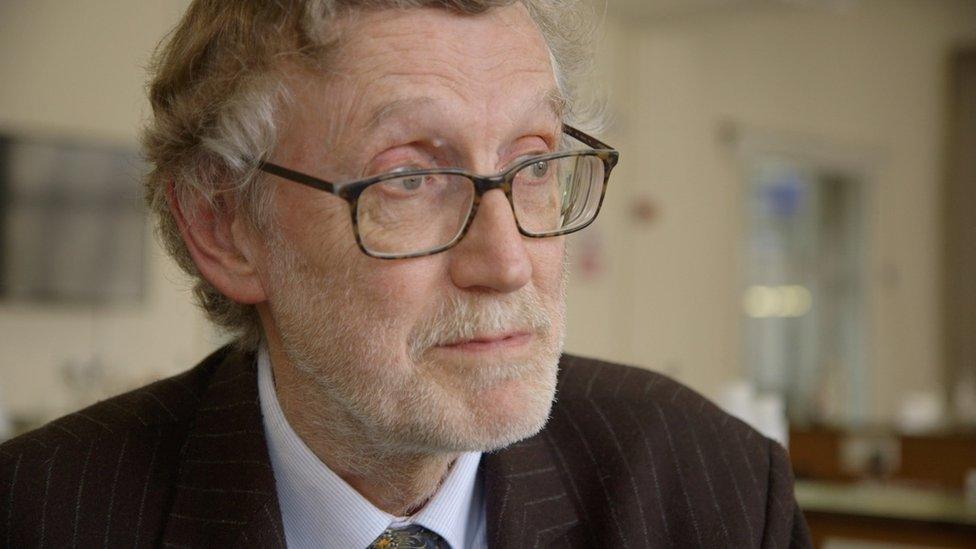
Dr Shepherd believes some people with ME simply can't cope with the GET treatment
Earlier this week, a leading expert - Dr Charles Shepherd, told Newsbeat one of the most common treatments should be scrapped right away.
Graded exercise therapy (GET) involves encouraging patients into increasing amounts of physical activity day by day, month by month.
But Dr Shepherd, medical advisor to the ME Association, says pushing people too far can plunge them back into a relapse that can last months.
His thoughts on GET are not shared by all, though.
A statement to Newsbeat from some of the country's leading ME researchers and clinicians* says: "These therapies help many people with CFS/ME by reducing symptoms, increasing what they can do, and improving their quality of life."

Protestors have laid out shoes in London in honour of loved ones who are too fatigued to be there
It goes on to say that using GET "is based on good evidence from multiple studies and randomised controlled trials showing that these treatments are safe and useful for some patients.
"Right now there are no alternatives for patients, so it is vital that they are not deterred from accessing therapies that can help them."
The Department of Health also admits ME is "poorly understood" and says "over the past six years we have invested £3.35 million in research to improve understanding of the condition and to look at new approaches to treatment".
*This is a combined statement from: Prof Trudie Chalder, Professor of Cognitive Behavioural Psychotherapy, Institute of Psychiatry Psychology and Neuroscience (IoPPN), King's College London; Prof Esther Crawley, Professor of Child Health, University of Bristol; Prof Paul McCrone, Professor of Health Economics, Institute of Psychiatry Psychology & Neuroscience (IoPPN), King's College London; Prof Michael Sharpe, Professor of Psychological Medicine, University of Oxford and Prof Sir Simon Wessely, Chair of Psychological Medicine, King's College London.
Follow Newsbeat on Instagram, external, Facebook, external and Twitter, external.
Listen to Newsbeat live at 12:45 and 17:45 every weekday on BBC Radio 1 and 1Xtra - if you miss us you can listen back here.
- Published8 May 2018
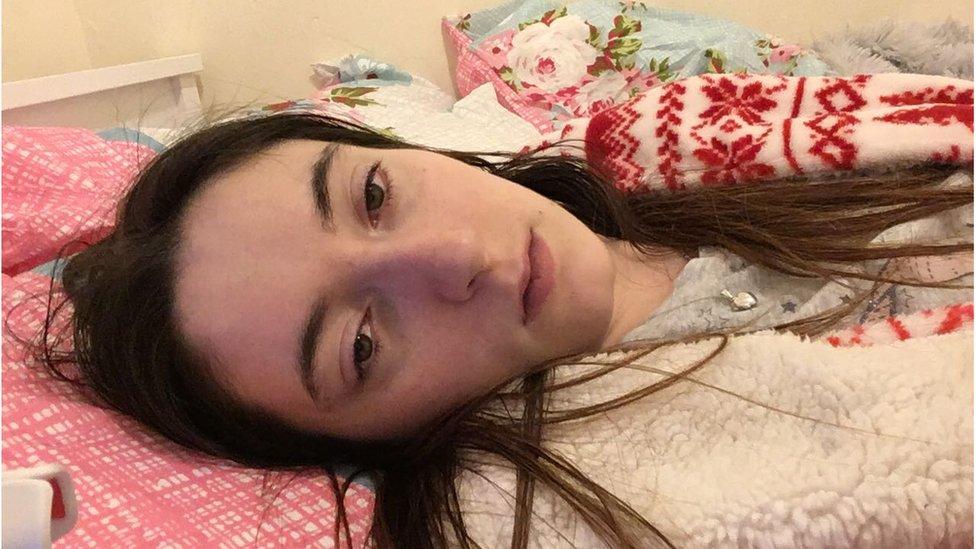
- Published8 May 2018
